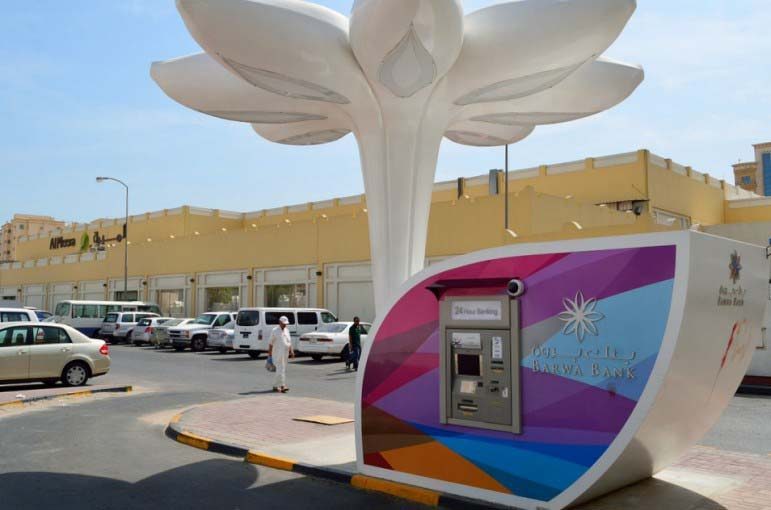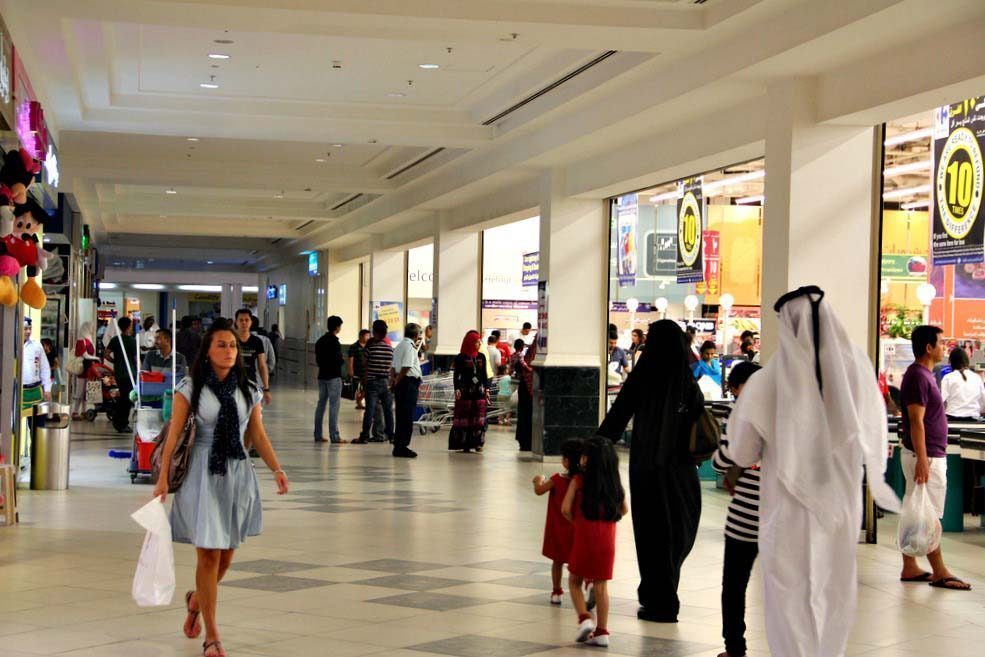
Qatar’s only elected body has recommended that shopping centers around the country put back into place a policy that prohibits blue-collar workers from entering malls on the weekends.
During their regular meeting today, Central Municipal Council (CMC) members complained of being uncomfortable when visiting some malls in Qatar due to the growing presence of expat males there.
According to Nasser Ibrahim Mohamed Al Mohannadi, who was the first to raise the issue, families in Al Khor especially struggle because there is only one small mall there that includes the town’s main supermarket.

He said that malls were one of the few places that offered a “breather” for families in Qatar on weekends, especially during the hot summer months.
Speaking to Doha News, Al Mohannadi added that hundreds of workers flock to Al Khor mall on Fridays to buy their groceries from Lulu Hypermarket.
The crowds sometimes make it uncomfortable for women and girls to simply walk around the mall, and sometimes men look at them inappropriately, which is against the customs and traditions of a conservative society like Qatar, he said.
This forces families living in Al Khor to drive “all the way” to Doha to buy their groceries and do other shopping, Al Mohannadi said.
Compromise
He added that several beaches and parks in Qatar already have family-day policies, and malls should as well. Many used to enforce this policy, but have done away with it in recent years amid international criticism and scrutiny.
On the other hand, CMC member Saeed Rashid Al Hajri said that Qatar’s blue-collar population works hard to help build the country, and that men should be allowed to visit malls and other recreational facilities, provided they are accompanied by their wives.
Many men who live in Qatar are married but their families are back home, which Al Hajri said should be changed so that workers don’t have to be away from their wives and children.

As a compromise, Al Hajri proposed either allocating certain malls for “bachelors,” or dividing the month into two weekends for families and the two others for workers, to also give them the opportunity to relax after a week of hard work.
For his part, Al Mohannadi suggested to Doha News that men in Al Khor could now visit the Barwa workers’ sports complex instead. The facility began offering many recreational services for workers living in that area late last year.
This includes sporting facilities for football, cricket, volleyball and basketball, as well as shops that sell food and beverages.
Many CMC members agreed that workers in malls was a general problem for families in Qatar, and decided to refer a proposal about reinstating family day policies to an internal committee for further discussion.
The goal would be to come up with recommendations that can be presented to the Ministry of Municipality and Urban Planning.
Malls
“Family Day” used to be a policy enforced by malls on Fridays, the one day of the week that most of the country’s blue-collar population is off.
But many shopping centers, including City Center mall, have done away with it.
Speaking to Doha News, mall director Joerg Harengerd said the center was now open to everyone, including workers, adding that although they don’t usually spend much money at the mall, they were still customers.
He said many of them come to transfer money abroad to their families or buy some food.

Referring to the newly implemented wage protection system (WPS), which requires firms to pay employee salaries through direct bank transfers, Harengerd said that the workers now need to frequently visit their banks branches to perform different transactions.
“How can they survive if we don’t allow them to come in,” he said, adding that the mall was big enough to accommodate everyone, as it receives tens of thousands of visitors a day.
If there is any inappropriate behavior on behalf of visitors, the mall’s staff would point it out to them, like telling them not to lie down on the floor, he said.
And if a worker is dressed in dirty or torn clothes, security personnel would kindly tell them to return to the mall after dressing in more appropriate attire, he added.
However, this rarely takes place, according to Harengerd, as most visitors are well aware of the mall’s rules.

Regarding family days, he said that malls could possibly allocate a day of the week during which it offers more activities for children and families, but added that this could be done without preventing anyone from entering the mall, in case they need to run an urgent errand.
Meanwhile, a no-workers policy does remain in place at some shopping centers throughout the entire week.
According to Zahid Iqbal, operations manager at Dar Al Salaam Mall, the mall prevents single workers, especially those who are wearing their uniforms, from entering the mall because they disturb other visitors and sit in the seating area allocated for women and older visitors without purchasing anything.
Segregation
In recent years, Qatar has been working to build housing for low-income workers, but authorities have also tried to keep them separated from the rest of the population, in accordance with Law No. 15 of 2010.

However, there is no law or government directive that calls for the segregation of blue collar workers from the rest of the population in recreational areas such as malls, parks or beaches, according to CMC members.
Last month, CMC discussed a proposal to increase the enforcement of the so-called “bachelor-ban.”
In the same month, the MMUP renewed efforts to ban blue-collar expats who live in Qatar without their families from living in established residential areas.
Thoughts?







